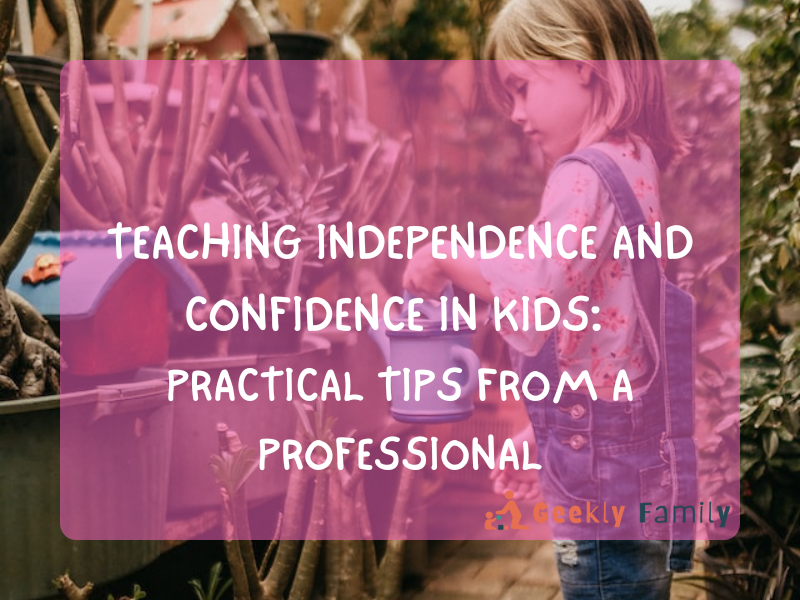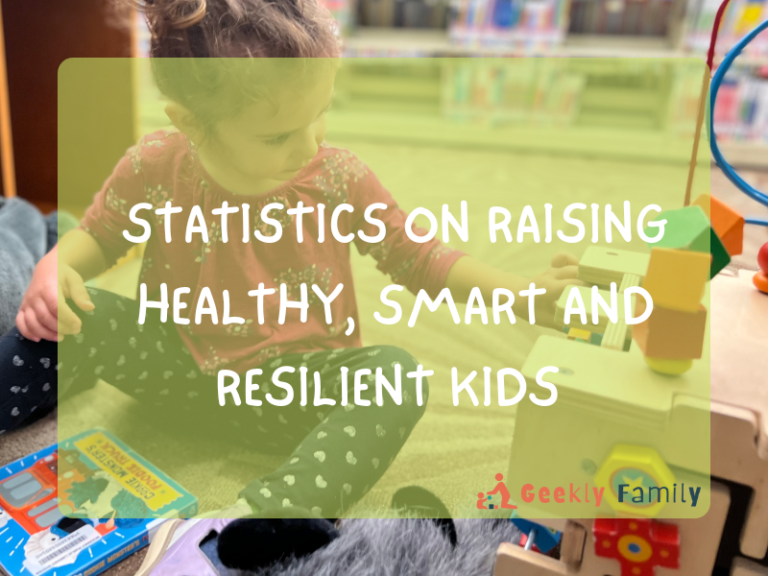Teaching Independence and Confidence in Kids: Practical Tips from a Professional
We as parents know how important independence is for every individual especially in adulthood. Hence, it is crucial that we teach our children to be independent and self-confident during childhood.
That is why we talked to Anne Inwood who is part of Successful Families Together to get some expert advice on how can parents succeed in this endeavor. Continue reading to find out!
Table of Contents
1. What is the reason for building independence in preschool aged kids? When is too early or when is it too late?
Building independence is a skill that children work on as they get older and continue to develop. Around the age of 18-24 months, many parents notice children are willing to do things on their own and make their own choices. At this age, this can be difficult as children still need assistance for various skills hence there are not as many situations where parents can allow them to make independent choices.
Once they get to kindergarten, there is only one teacher for every 20-25 children so it will be necessary for children to become more independent. Here independence means collecting their toys, eating alone, asking for water, or going to the toilet by themselves.
Around preschool, people start to have more expectations in regards to their children’s abilities. So, they often ask “when do kids learn colors?” or “when do kids learn to count?”.
In preschool, there are more teachers per child so this is a great time for them to pick up the pace if they were a bit behind their peers. It can also still be a good head start for children who are too dependent on their parents.

2. Please share some examples that will help parents develop independence.
Becoming independent for a child can start with smaller choices such as what clothes to wear, what shoes to put on, or what snack to have. In addition, you can also start assigning simpler tasks such as putting on their own shoes, getting their own coat on, or helping to clear their plate from the table.
If they are in a preschool class, the teachers will be encouraging this independence so these skills can be carried over to the home environment as well.
When encouraging independence, it is important to be available to help if the child needs assistance and support. When they first start doing tasks independently, they may easily become frustrated if they are unable to complete a task. Providing encouragement can motivate children to try the task again and not to give up until they succeed.
Along with independence in terms of completing tasks, it is important to help children learn how to make their own decisions and choices. As children get older, the choices that a child will be faced with will only get harder to make and more complicated. If they do not know how to make their own decisions, they may be influenced by someone else and this may not always be the best for themselves.
When you are helping them learn how to make their own choices, start with easier choices such as snacks, clothes, or the next game to play. When they are starting to make choices with more consequences, help them to think through the various options and the pros and cons of each. Parents need to instruct their children how to think through a decision so that children can do it by themselves later on.
Back to the age-appropriate chores, I would say that once in preschool and kindergarten, children can begin helping more around the house. As kids get older, these tasks can include clearing the table or putting away their laundry. They can also help make dinner with safe and simple tasks such as adding already cut up ingredients or mixing the ingredients.

Assigning chores is extremely important for your child. Statistics show that helping around the house or their parents can teach children about self-control and can build up their self-esteem.
3. How does parent-child communication influence kids’ self-confidence and independence?
Communication is essential for all tasks and skills. When children know what your expectations are for them they know what they need to be doing. This helps them be independent as they do not always need to ask you what to do next.
Make sure to keep an open communication with your children so they can relate if they feel that they have too many responsibilities. To maintain closeness and open communication, many families adopt a family tradition of talking to each other for 15 minutes at dinner and relate how their day went by.
Besides this, you should also talk to them about what they feel comfortable doing. Show them how the family can work together as a unit when performing tasks around the house.
An important thing to note is that children should not be expected to take care of younger siblings or perform major tasks such as preparing a meal on their own in the process of honing their independence skills. Such major tasks can put a burden on the children as they may not be ready yet to do them independently.
Remember, start simpler! Ask them to get a diaper or help their sibling open a snack, but they should not be in charge until they are old enough to babysit other children. Learn to balance and allow children to be children and play.
4. When is a child too old to sleep with parents and is it something that affects independence?
In terms of children sleeping with their parents, this is something that depends on each family and can be cultural. There are some cultures that continue to co-sleep and children are still able to build independence. Other children learn to sleep independently from a very young age and only turn to their parents when they are sick or if they are working through a difficult situation.
Note that when children are upset or sick, they often need more reassurance and comfort and they may need more at the end of the day when they are going to sleep. This could also be accomplished by staying with your child until they are asleep to help them to feel comfortable to fall asleep. If you start to notice that your child cannot fall asleep independently, this may be the time to work on falling asleep independently. Because this can be related to culture, this can be harder to determine what each family is comfortable doing.
When helping children become independent, you should be able to help them build their confidence as well. If children are not confident in their skills and abilities, they will struggle more in life and have a harder time being independent.
Unconfident children are often unwilling to try new things or even work on their existing skills and talents. Teach self-esteem by encouraging children as they are trying new skills and provide assistance when they need it. However, hold your reins and do not jump in as soon as they are struggling! Instead allow them to struggle a bit and overcome the challenge. The key moment here is to step in before the child becomes frustrated. As you know, frustration can influence their motivation to try again.
About Anne Inwood:
Anne owns Successful Families Together which helps families to be as successful as they want and to help build routines for this. SFT provides mental health, parent support, parent resources, and parent education. She has done social work for over 15 years and has a variety of experiences with children and families. Her specialty are cases with families who have children with special needs.







